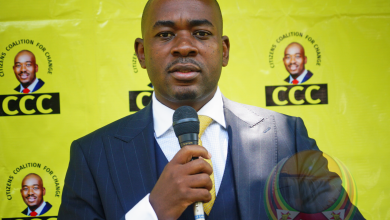Zimbabwean Parliament Urged to Extend Presidential Term Without Referendum

Zimbabwe’s Parliament faces a pivotal moment as calls grow for legislators to invoke Sections 117(2)(b) and 130(2) of the Constitution to enact a law that would extend the Presidential term without necessitating a referendum. Advocates for this legislative approach argue that it could avert the polarisation, divisions, and financial strain associated with holding a national referendum.
The Constitutional Argument: Legislative Powers
Sections 117(2)(b) and 130(2) of Zimbabwe’s Constitution grant Parliament extensive powers to amend or enact laws in the national interest. Section 117(2)(b) explicitly vests legislative authority in Parliament, while Section 130(2) outlines scenarios under which the legislative body can bypass referendums for constitutional changes.
Proponents argue that using this legislative power to extend the Presidential term is a pragmatic move that ensures continuity and stability. They cite global precedents, where governments have used legislative frameworks to amend term limits without public plebiscites.
Avoiding the Cost of a Referendum
A referendum entails significant financial implications for an economy like Zimbabwe’s, where resources are already stretched thin. According to recent studies, referendums in African nations have cost tens of millions of dollars, funds that could otherwise be channelled toward pressing developmental needs such as healthcare, education, and infrastructure.
In Zimbabwe, a referendum would require extensive voter education campaigns, logistical preparations, and deployment of electoral officers nationwide. Analysts warn that these activities could polarise the electorate, disrupt national cohesion, and delay critical governance processes.
Navigating Political Polarisation
Beyond financial considerations, referendums are often breeding grounds for political divisions. Zimbabwe’s history with referendums, such as the 2000 constitutional referendum, underscores the risks of deepening political fractures. At a time when the nation seeks to consolidate peace and economic recovery, many see avoiding a divisive referendum as a step toward unity.
Political observers have noted that Zimbabwe’s Parliament has the opportunity to lead decisively. By leveraging its legislative authority, it can chart a course that maintains governance continuity while sidestepping potential destabilisation.
Regional and Global Precedents
Countries like Rwanda and Uganda have used legislative means to extend presidential terms or lift term limits without going to referendums. In these cases, governments justified the decisions as essential for political and economic stability. Critics argue, however, that such decisions must strike a balance between national interests and democratic principles.
The Role of Citizens and Parliamentarians
While some argue that bypassing a referendum undermines democratic principles, others contend that Parliament, as a representative body, embodies the will of the people. Zimbabweans elected their legislators to make critical decisions on their behalf, including constitutional amendments.
The onus now lies on Zimbabwe’s Parliament to weigh public interest, national stability, and economic considerations as it navigates this contentious debate. If legislators opt to proceed, they must ensure transparent processes, broad consultations, and adherence to constitutional principles.




